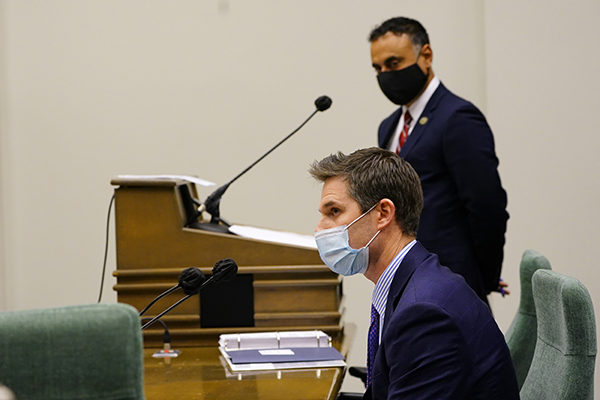
The California Chamber of Commerce is leading a large and diverse coalition of California-based organizations in opposing two bills that establish and raise taxes to fund a single-payer health care system called “CalCare.”
The CalChamber-identified job killer bills are AB 1400 (Kalra; D-San Jose) and ACA 11 (Kalra; D-San Jose).
AB 1400 awaits action by the entire Assembly after passing the Assembly Health Committee on January 11 and the Assembly Appropriations Committee on January 20.

Expensive Bureaucracy
In a letter to the Assembly, the coalition, comprised of more than 130 members, points out that AB 1400 and ACA 11 “would create a new and exorbitantly expensive government bureaucracy…ultimately resulting in significant job loss to California.”
Similar past proposals have been estimated to cost more than $400 billion annually, which is a financial commitment four times that of Medi-Cal, the coalition states in the letter.
“Successfully standing up a new function that would be twice the size of the existing state budget is highly doubtful, given the state’s recent experience with benefit delays and massive fraud in the unemployment system,” the letter states.
CalChamber Policy Advocate Preston Young, who is leading the coalition, has said that the taxes needed to fund the single-payer health care system as outlined in ACA 11 will have a significant impact on nearly all California employers. According to the Tax Foundation, ACA 11 would increase taxes by $12,250 per household annually.
Biggest Tax Hike in History
The proposals outlined in AB 1400 and ACA 11 would represent the biggest tax increase in state history, punishing Californians as a whole by increasing personal income taxes, payroll taxes, and gross receipts taxes.
This enormous tax increase would come at a time when California is experiencing a $31 billion surplus, which pales in comparison to the annual expenditures that a government-run health system demands. This type of tax increase would likely lead to significant layoffs or relocations, discouraging companies from growing in or relocating to California.
If ACA 11 is enacted, California’s top personal income tax rate for individuals and sole proprietors — already the highest in the country — would increase by 2.5%. Additionally, ACA 11 would implement a payroll tax of 1% of the aggregate amount of wages or other compensation paid by the employer to resident employees in excess of $49,900, and a gross receipts tax of 2.3% on businesses with more than $2 million in gross revenues.
Proponents of the measure recently indicated that the tax increases would likely generate $160 billion–$170 billion annually. Prior versions of similar single-payer proposals were estimated to cost more than $400 billion a year, including existing state and federal tax contributions.
California voters have twice rejected a government-run health care system at the ballot box — in 1994 and 2004.
Budget Proposal
Currently, about 94% of Californians have health care coverage in some fashion. A majority of the uninsured population is comprised of undocumented individuals. Governor Gavin Newsom’s 2022–2023 budget proposal addresses this very issue and would make California the first state to offer health care coverage for all income-eligible residents regardless of immigration status.
AB 1400 will need to pass the Assembly by January 31 to remain alive. The companion constitutional amendment, ACA 11, has not yet been brought forward for a vote.
See the coalition letter to the Assembly here.

